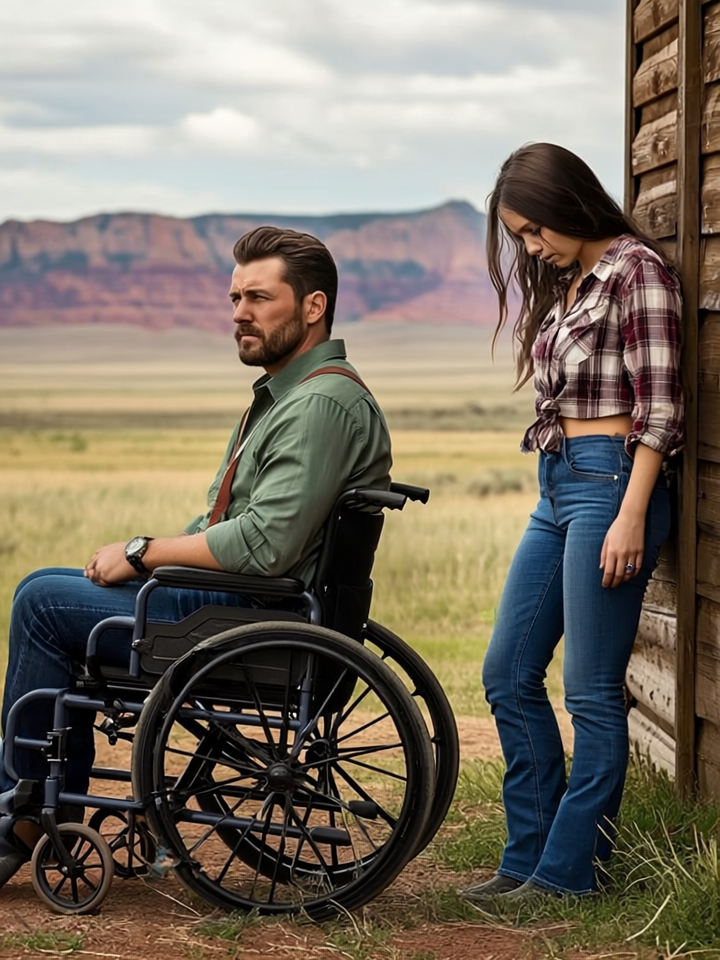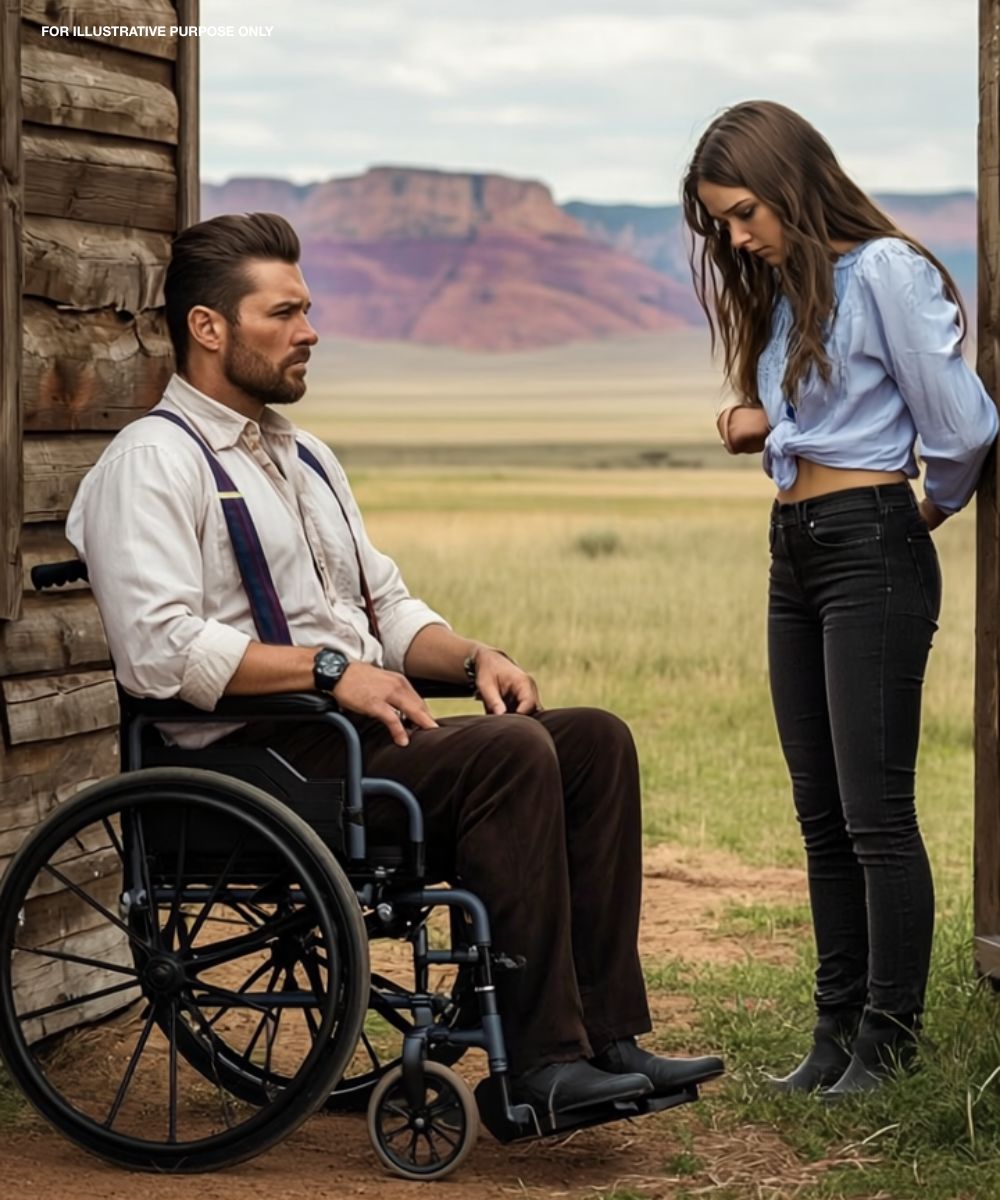At forty years old, Alejandro Herrera had firmly convinced himself that romantic love would never be part of his life’s story. He dwelled alone in a modest wooden cabin nestled high in the Sierra Madre Mountains, having surrendered to a life of solitude after enduring years filled with rejection and public humiliation.
Born with cerebral palsy, Alejandro’s gait was uneven, his right arm lacked full strength, and his speech carried a slow, rhythmical cadence often viewed as unusual by many. However, what inflicted the deepest wounds was not his physical condition, but the disdain and unkindness he faced from others.
At the age of twenty-five, he had courageously asked a colleague named Patricia out on a date. The response he received was devastating: “You’re a kind person, Alejandro, but I could never be with someone like you. What would others think?” The very next day, she shared this with others at work, resulting in Alejandro becoming the subject of merciless mockery. This painful episode was the breaking point for him. Although his parents were loving, they offered little comfort regarding his emotional pain. His father had once bluntly advised him, “Men like us aren’t meant for marriage. Concentrate on your career.”
Seeking refuge, Alejandro decided to escape from the harsh realities of judgment.
He invested his savings into purchasing a secluded home where he could live without pity or ridicule. For eight years, he adhered to a strict daily routine: rising at six o’clock, savoring black coffee, caring for his three rescued dogs—Bruno, who was blind; Luna, with only three legs; and Coco, who was deaf—and dedicating long hours to programming as a freelance coder. Within the sanctuary of his solitude, he felt shielded from harm, yet loneliness gnawed at him deeply.
During a fierce November storm, a sudden knock at the door startled him. Visitors were rare, and Alejandro had deliberately distanced himself from strangers. Peering through the window, he noticed a drenched young woman trembling from the cold rain. Despite his instinct to remain silent, his empathy prevailed and he opened the door.
“Are you okay, miss?” he asked, his voice wavering slightly.
The woman, Elena Castillo, a thirty-four-year-old photographer, explained hurriedly that her truck had broken down, her GPS had failed, and she had been walking through the storm for hours. Alejandro intended to give her a phone and ask her to leave, but the ongoing tempest made that impossible. “Please come inside,” he said with hesitation. “You cannot stay out in this weather.”
Soaked and shivering, Elena stepped inside, water dripping onto the floor.
His three dogs surrounded her immediately, with Luna leaning against her as if sensing a new source of trust. Alejandro handed her towels, brought tea, and mentioned that there was no mobile signal until the storm subsided. Elena, visibly cold yet grateful, introduced herself warmly. Alejandro observed how she met his gaze effortlessly, showing no hesitation or discomfort at his limp or the way he held his arm. It was the first time in many years someone had looked at him without prejudice.
“This simple act of kindness awakened a warmth in Alejandro’s heart that had long been dormant.”
That night, Elena stayed in the guest room while the storm raged outside. Alejandro remained awake, unsettled by an unfamiliar feeling stirring within him. Was it possible that someone could see beyond his disability to the man beneath?
The next morning, as he prepared breakfast nervously, Elena joined him. The ordinary moment of sharing coffee felt surreal, almost like a dream. She inquired about his mountain life sincerely, and Alejandro slowly revealed his self-imposed isolation due to cruelty endured by being “different.”
“Different in what way?” she asked gently.
“I have cerebral palsy,” he answered plainly. “I limp, I speak slowly. I’m not considered attractive by many.”
Elena met his eyes steadily. “That’s nonsense. Today, you sheltered me from a storm with kindness and warmth. If others can’t recognize your value, that speaks of their loss, not yours.” Her words deeply touched him, igniting a hope long suppressed.
Later, they attempted to start Elena’s truck, but it remained inoperable. With the roads blocked, Elena requested permission to stay a few days. Alejandro’s heart raced at the possibility. “Certainly,” he responded, trying to project calm.
The following days brought unexpected change. They cooked meals, exchanged stories, and wandered the property with the dogs. Although Elena was captivated by nature photography, Alejandro noticed her camera occasionally focused on him. After eight long years, he finally felt seen and not invisible.
One evening, as the sun set, Elena softly inquired, “Alejandro, have you ever been married?”
He fell silent, then murmured, “I’ve never been with anyone. I’ve never kissed a woman. At forty, I’m still a virgin. Women see me only as a friend, never as more.”
Elena’s chest tightened in empathy and admiration. She scooted closer. “That’s their loss. They failed to see the man I see.”

Before Alejandro could reply, Elena made a declaration that transformed his world: “I’ve fallen in love with you.”
Alejandro stared, disbelief etched on his face. “That can’t be. You’re beautiful, independent—you could have anyone.”
“But I want you,” Elena said firmly, taking his hand. “May I kiss you?”
Trembling, he nodded. Their lips met tenderly, then deeply, unraveling a lifetime of hidden yearning. Tears streamed down Alejandro’s cheeks. His first kiss at forty years old was flawless.
For four days, they existed in a world distinct from reality. Yet reality intruded when a mechanic arrived to fix Elena’s truck. Obligations called her away—deadlines, assignments abroad and a life beyond the mountains. Alejandro’s fears resurfaced like an unwelcome shadow.
“I want you to come with me,” Elena suddenly declared.
Fear gripped Alejandro. “I can’t. Outside, people will stare and mock us. They’ll question why a woman like you is with me.”
“Stop,” Elena commanded gently. “You are not flawed. What I see is a man who built a meaningful life despite obstacles, rescues dogs because he understands rejection, who sheltered me during a storm and made me feel safe. That’s the man I love.” She knelt, tears in her eyes. “Even if you cannot believe you deserve love, believe me when I say that you do.”
The mechanic finished his work, but Elena refused to leave without Alejandro. “Please come with me.”
He looked at his home, his dogs, and the fragile enclosure of isolation. Then he gazed at Elena—the woman who had dismantled his emotional defenses. “I can’t leave my dogs,” he whispered.
“Then we’ll bring them along,” Elena assured through tears. “Where you go, they will follow.”
Closing his eyes, Alejandro faced decades of fear opposing newfound bravery. Then he whispered, “I will go with you.”
She kissed him passionately, confirming his choice.
Two weeks later, Alejandro found himself amidst bustling crowds at the Mexico City airport after years of solitude. His dogs rested in travel carriers, and Elena held his hand tightly.
“Are you okay?” she asked.
“It’s overwhelming,” he admitted, nervously noting murmurs and glances from strangers. Old insecurities whispered, wondering if they mocked him or doubted Elena’s choice.
Elena leaned in confidently. “Let them look. Their judgments don’t define us. The truth is what you and I share.”
Alejandro studied her radiant face, and for the first time, accepted the truth: genuine love, authentic and undeniable, was within his reach.
- Love can emerge in the most unexpected moments.
- Compassion breaks down barriers that society builds.
- True connections look beyond physical appearances or disabilities.
- Courage to embrace love requires overcoming deep-seated fears.
In conclusion, Alejandro’s story exemplifies the transformative power of empathy and acceptance. Despite years of hardship and isolation, a single act of kindness opened the door to love and a renewed life filled with hope. His journey reminds us that everyone deserves to be seen, valued, and loved for who they truly are.
